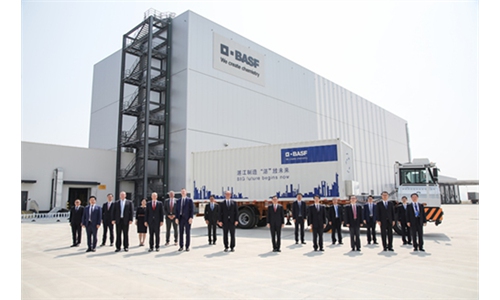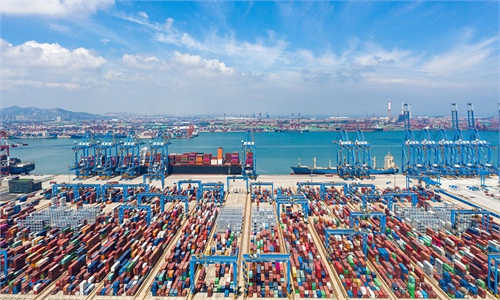China's State Council issues 24-point guideline to optimize foreign investment
Swift measures intended to help stabilize economic growth

Lujiazui Photo:VCG
China's State Council, the cabinet, on Sunday issued a 24-point guideline covering six areas, which is intended to improve the climate for foreign investment and attract more funds, the latest move to stabilize second-half economic growth.
The guideline pledged to continue China's high-quality opening-up by using the advantages of the nation's super-sized market, attracting and using foreign investment more efficiently, and building a market-oriented, legalized and internationalized business environment.
The measures vowed to strengthen the foreign investment climate in six key ways: improving the quality of utilizing foreign investment, ensuring national treatment for foreign-backed enterprises, strengthening the protection of foreign investment, improving investment and business facilitation, increasing fiscal and tax support, and upgrading the facilitating mechanism for foreign investment.
The guideline was a follow-on move intended to stabilize economic growth after the meeting held by the Political Bureau of the Communist Party of China Central Committee on July 24, which provided a policy basis for economic work in the latter half of 2023 and perhaps next year, Dong Shaopeng, a senior research fellow at the Chongyang Institute for Financial Studies at the Renmin University of China, told the Global Times on Sunday.
Li Yong, a senior research fellow at the China Association of International Trade, told the Global Times on Sunday that the fiscal and tax support of the guideline may directly benefit foreign investors. "Multiple trial free trade zones across China and policies that were already implemented have facilitated foreign investors' local business by offering tax reductions," he said.
Since January 1, China has released its catalogue of encouraged industries for foreign investment, which added 239 items, a record high. Analysts said that the catalogue was intended to encourage foreign investment in advanced manufacturing, modern services, high tech and the green sector.
"The latest measures were in line with China's consistent policy of high-quality opening-up, and also generated more opportunities for foreign investors," said Li.
In the first half of 2023, China's actual use of foreign direct investment (FDI) amounted to 703.7 billion yuan ($97.24 billion), down 2.7 percent year-on-year, remaining stable amid slowing global economic growth.
Vice Minister of Commerce (MOFCOM) Guo Tingting said that in the first half, China had 24,000 newly established foreign-invested firms, up 35.7 percent.
Capital investment in China from developed countries continued to grow, with investment from France surging 173.3 percent and that from the UK growing 135.3 percent. Japan's investment grew 53 percent and that of Germany was up 14.2 percent, according to Guo.
"China's FDI growth is under pressure, but the demand for high-quality merchandise and services in China's large-scale market still offers a predictable outlook for international investors," said Dong, noting that supportive policies listed in the guideline will greatly encourage foreign enterprises that hope to expand their businesses in China.
The MOFCOM held a roundtable on July 21 on policy interpretation and communication for foreign business associations, after the ministry set up a roundtable system with foreign enterprises to further improve the business environment.
Representatives from the American Chamber of Commerce in China, the EU Chamber of Commerce in China, the Japanese Chamber of Commerce and Industry in China, the South Korea Chamber of Commerce in China and more than 30 enterprises, attended the meeting.
They said that the roundtable focused on the concerns and demand of enterprises, and helped to interpret policies and regulations, which has strengthened two-way communication and their confidence in their long-term development in China.



